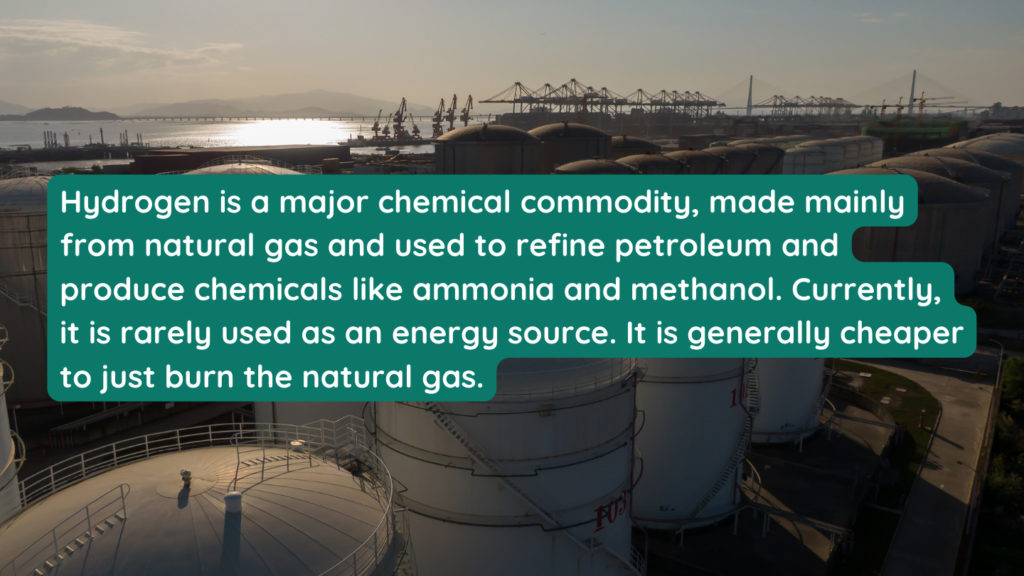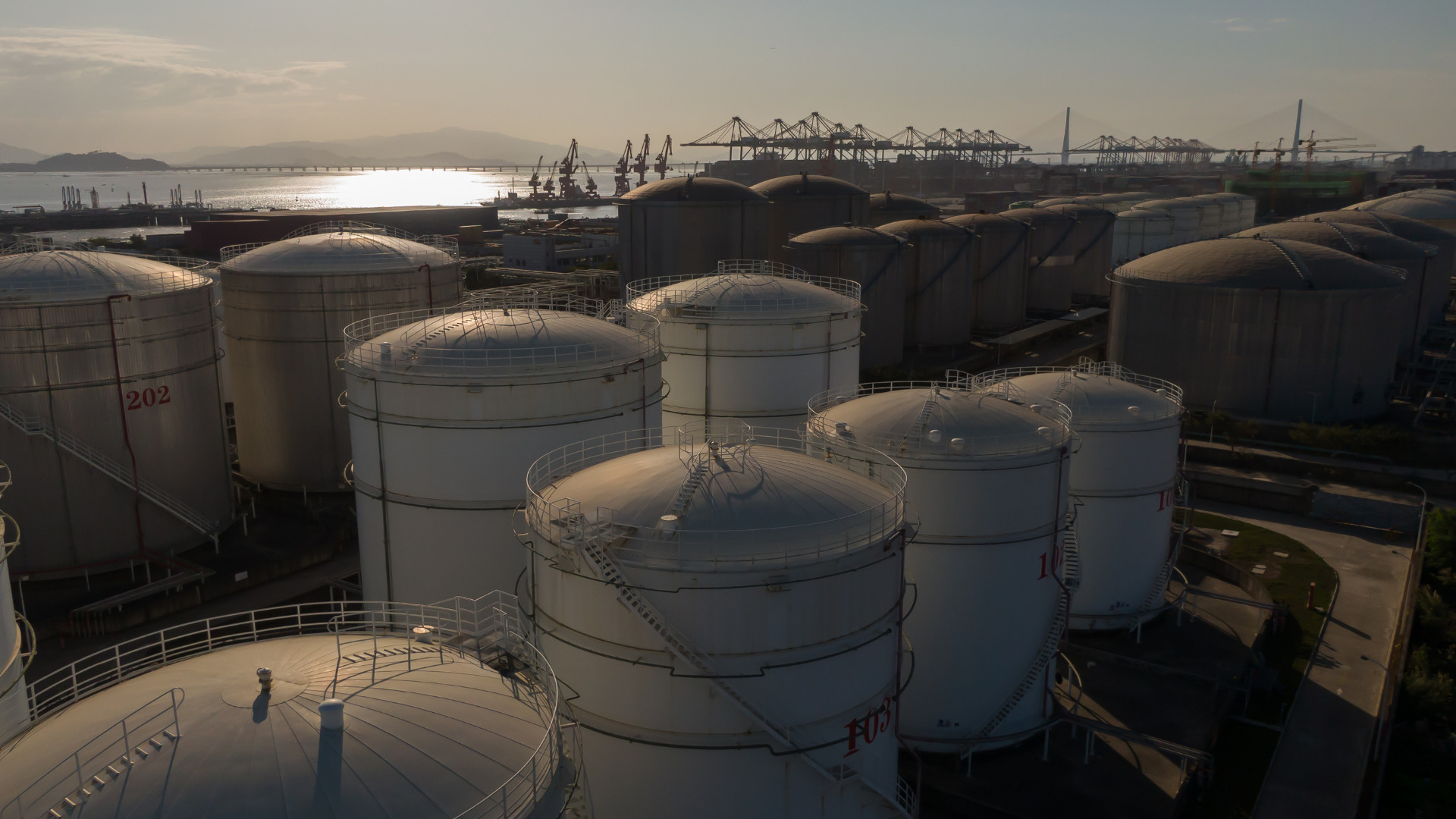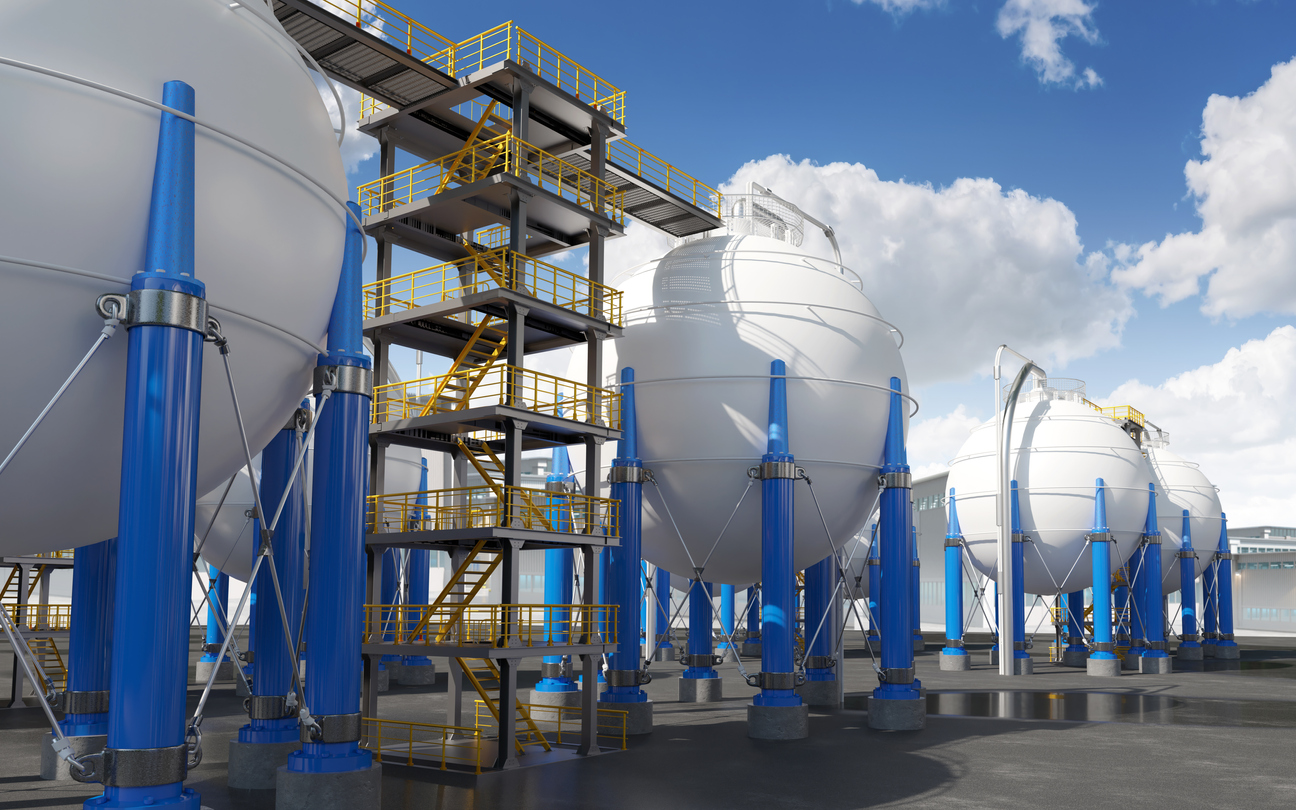
Hydrogen Energy: A Critical Review to Ensure Community and Climate Benefits

the HYDROGEN EJ FRAMEWORK
This community-created and directed analysis utilizing an environmental justice framework is paired with a technical analysis that looks more deeply at the environmental impacts and potential benefits. This framework provides values for communities to evaluate hydrogen energy concepts and critically analyzes the implications to inform community decision-making. Ultimately, our interests are finding the best solutions to protect marginalized communities from further harm and advance just solutions to address the climate crisis.
We must carefully evaluate climate solutions to ensure they are not perpetuating environmental injustices.
The United States’ reliance on fossil fuels has been a central cause of the climate crisis and a principal element in environmental injustice. Meeting the need for a reliable energy supply will require complex technologies. Hydrogen, until now mainly a chemical commodity, has been proposed as a major energy source. The impacts of producing and using hydrogen as an energy source depend centrally on the production methods and inputs and the end use of hydrogen. These impacts range from perpetuating environmental injustices and the fossil fuel industry to significant net environmental and EJ benefits.
Impacts must be evaluated at various geographic scales because hydrogen production and use have different effects in different locations; even when net global benefits exist, local negative impacts could still be significant. Thus, net global, site-specific, and application-specific impacts must be considered, including alternatives to hydrogen with lower overall environmental impact and/or more significant climate mitigation benefits for the same or similar inputs.
Community consent is always essential, even when there are global benefits.
ABOUT THE JUST SOLUTIONS RESEARCH COLLABORATIVE
Fundamental to developing this community-directed and informed analysis, Just Solutions convened a Research Collaborative of nine community-based climate and environmental justice organizations, ensuring that the perspectives of various communities, sectors and geographies were represented. After a thorough community scan, we identified organizations with relevant experience and interests in hydrogen energy and its societal impacts and a willingness to deepen their collective understanding of the technology and produce a comprehensive review.
- Juan Flores, Air Alliance Houston
- Alex Spike, Air Alliance Houston
- Theo Caretto, Communities for a Better Environment
- Yvette Arellano, Fenceline Watch
- Shiv Srivastava, Fenceline Watch
- Marie Thuraisingham, Front and Centered
- Maria Lopez-Nuňez, Ironbound Community Corporation
- Susan Thomas, Just Transition Northwest Indiana
- Sean O’Leary, Ohio River Valley Institute
- Alex Jasset, Physicians for Social Responsibility – Los Angeles
- Alejandria Lyons, New Mexico No False Solutions
- Rev. Joseph Santos-Lyons, facilitator, Tipolo Consulting
hydrogen energy production & use

HYDROGEN EJ FRAMEWORK MESSAGING TOOLKIT
Download the messaging toolkit for key talking points, graphics, and suggested social media copy for sharing the framework with your network.
Technical AnalysES

WATER REQUIREMENTS FOR VARIOUS APPROACHES TO HYDROGEN PRODUCTION:
Quantitative, Siting, and Resilience Considerations
Arjun Makhijani Ph.D. | Thom Hersbach Ph.D

STORING ELECTRONS
An Analysis of the Role of Long-Duration Energy Storage in a
Decarbonized, Economical, Equitable, Resilient Electricity System
Arjun Makhijani, Ph.D. | Shay Banton | Jeffrey Marqusee, Ph.D.

HYDROGEN: WHAT GOOD IS IT?
a technical exploration of the potential of hydrogen
to contribute to a decarbonized energy system
Arjun Makhijani, Ph.D. | Thom Hersbach Ph.D.
Latest Articles ON HYDROGEN ENERGY
upcoming webinars
PODCAST EPISODE

Coming soon. For now, listen to our show!

